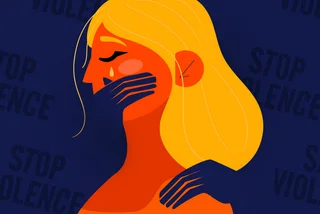In a historic decision, Czechia’s Chamber of Deputies has approved a government-sponsored amendment to the country’s Penal Code that changes the legal definition of rape from forcible to non-consensual sexual intercourse.
The bill also includes a provision that considers any sexual practices with children under the age of 12 as rape.
Rape can be non-violent
The amendment uses the "no means no" principle. Victims can indicate disapproval non-verbally through gestures, crying, or defensive posturing. It also accounts for a victim's inability to consent due to factors like illness, sleep, mental incapacity, heavy intoxication, restraint, or disability. The new definition states that rape doesn't have to involve physical force from perpetrators.
Under the new amendment, the crime of rape will only include intercourse and other penetrative acts. Less serious sexual practices will be considered a separate offense of sexual assault.
The use of a weapon during a sexual assault will result in a higher penalty for both sexual assault and rape. Additionally, sexual coercion will now also be considered a criminal offense.
Swift approval, unanimous agreement
Organizations supporting crime victims, such as the Czech Women's Lobby (CZL), have praised the amendment's approval. Chairwoman Marta Smolíková stated: "This is the culmination of CZL’s work and our hard efforts. It turns out that the lower house understands victims, so there should be no problem with ratifying the Istanbul Convention." Czechia has controversially not yet ratified the Istanbul Convention, despite multiple attempts to do so.
Smolíková also noted the strong support across all parties in the Czech parliament when voting on the bill. She described the amendment's quick approval as "absolutely unprecedented and exceptional."
Member of Parliament (MP) Taťána Malá, the rapporteur of the draft amendment, believes that the new definition will improve the position of victims. She has called on the Justice Ministry to start an awareness campaign on the change in the definition of rape. Other MPs, such as Klara Kocmanová and Michal Zuna, have expressed their support for the amendment, calling it a big step towards justice for victims.
Zuna said he hopes that the legal change will also change court practice, which now sees half of reported rape cases shelved and one-quarter ending in suspended sentences.
The Czech Senate will now vote on the amendment – highly likely to be approved, as both the ruling coalition and opposition agreed on the redefinition. President Petr Pavel will then sign the bill into law, which is expected to take place within a few months.
SEXUAL VIOLENCE: BY THE NUMBERS
- There are about 34 cases of rape every day in Czechia.
- Fifty-two percent of people think sexual violence is common in society.
- An estimated 5 percent of rapes are thought to be reported.
- Two out of five adults have been victims of sexual harassment or violence.
- One-quarter of people believe a rape victim is partly responsible if they were wearing "provocative clothing."
Sources: Amnesty International, Beztrestu.cz
The change in the definition of rape has been a topic of discussion in many European countries in recent years. Sixteen countries, including Malta, Croatia, and Spain, have adopted the "yes means yes" concept, while others, such as France and Austria, still adhere to a definition of rape based on violence or threat.













 Reading time: 2 minutes
Reading time: 2 minutes 



























